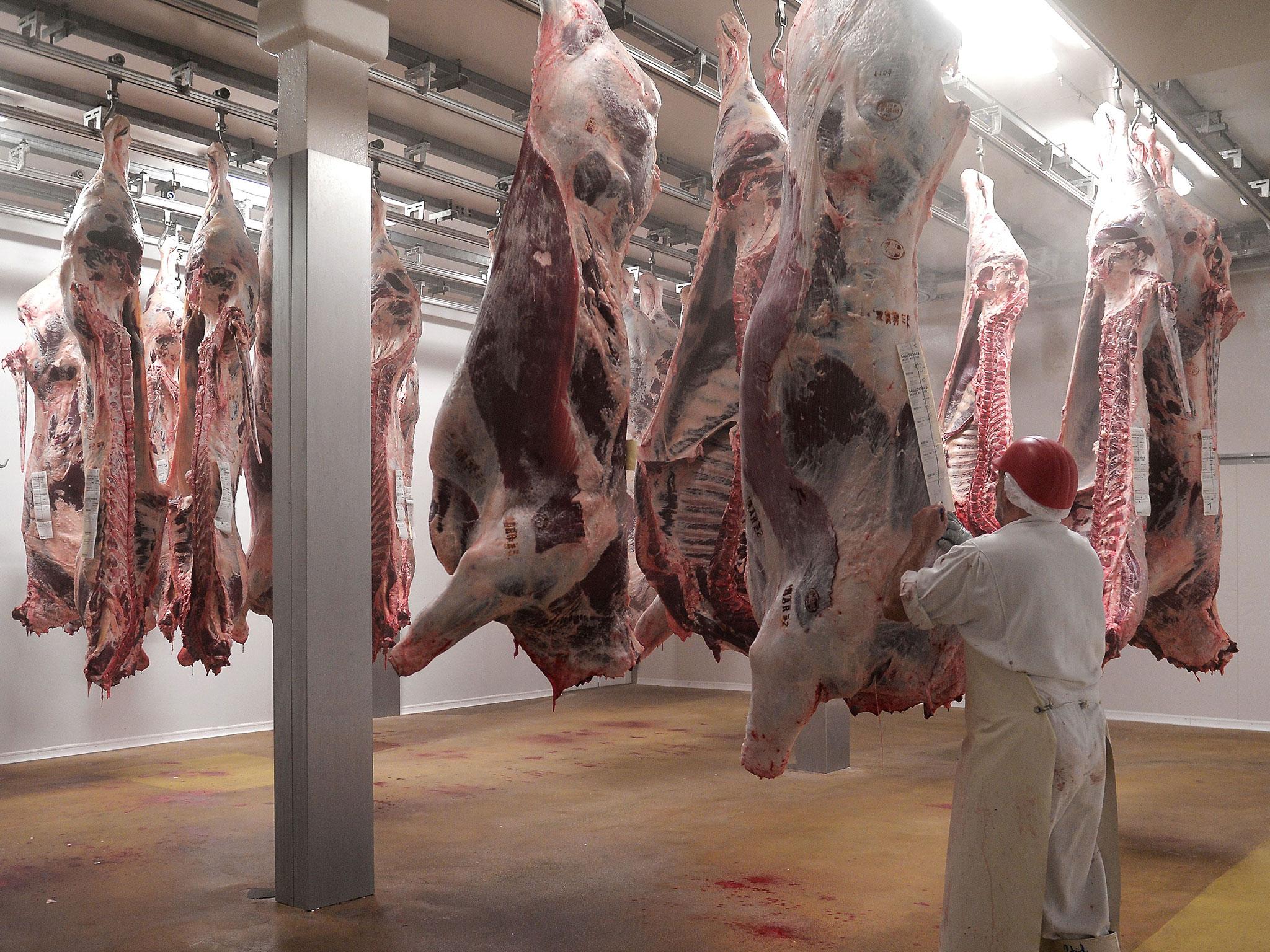Austria reassures Jews over far right politician's plan to force kosher meat eaters to obtain permits
Gottfried Waldhäusl, from far right Freedom Party, claims plan 'from point of view of animal welfare'

Your support helps us to tell the story
From reproductive rights to climate change to Big Tech, The Independent is on the ground when the story is developing. Whether it's investigating the financials of Elon Musk's pro-Trump PAC or producing our latest documentary, 'The A Word', which shines a light on the American women fighting for reproductive rights, we know how important it is to parse out the facts from the messaging.
At such a critical moment in US history, we need reporters on the ground. Your donation allows us to keep sending journalists to speak to both sides of the story.
The Independent is trusted by Americans across the entire political spectrum. And unlike many other quality news outlets, we choose not to lock Americans out of our reporting and analysis with paywalls. We believe quality journalism should be available to everyone, paid for by those who can afford it.
Your support makes all the difference.The Austrian government has reassured the country’s Jews there will be no law requiring permits for kosher meat, following a proposal by a local government department that triggered widespread outrage.
The draft decree in Lower Austria, one of nine states that makes up the central European country, would have effectively banned kosher sales other than to Jews who could prove they regularly ate the ritually slaughtered meat.
It was put forward by the state’s department of animal welfare, which is headed by Gottfried Waldhäusl, a local cabinet minister from the populist Freedom Party – a political party launched by ex-Nazis in the 1950s.
But Sebastian Kurz, chancellor and leader of the ruling People’s Party, said in a statement the federal government supported the “freedoms and fundamental rights” of the country’s Jewish population.
“We are clearly committed to our Judeo-Christian roots and will continue to defend them against any form of attack,” he said in a joint statement with Gernot Blümel, federal minister for the European Union.
“We consider it our responsibility that Jewish life in our country is guaranteed in safety and without restrictions.”
Oskar Deutsch, president of the Jewish Community in Vienna, had warned any such plan would in practice require compiling a list of Jews, which he told Haaretz was “like a negative Aryan clause”; a reference to antisemitic laws passed by Nazi Germany.
Mr Blümel, Lower Austria governor Jahanna Mikl-Leitner and Wolfgang Sobotka, president of the national council, said in a separate statement a register of kosher and halal meat buyers “will certainly not take place” in the country.
“The president of the Austrian Jewish Community has been informed that all his fears regarding the question of the availability of kosher meat will be allayed,” they added.
Mr Waldhäusl claimed the proposal was “from the point of view of animal welfare” and that religious rites slaughter should “generally be rejected”. Kosher meat requires all animals to be conscious at the point of slaughter.
“We are checking whether the meat requirement can be linked to the place of residence,” he said, according to Austrian newspaper Wiener Zeitung.
Mr Waldhäusl, who is also a farmer, added Lower Austria was “not there to provide meat to the Viennese”; the Austrian state where most of the country’s 8,000 Jews live.
The Freedom Party is currently serving as the junior partner in a coalition government with the People’s Party, a conservative party led by Austrian chancellor Sebastian Kurz. It came third in elections held last year, with 26 per cent of the vote.
Despite claims that it has left its Nazi links behind, the party has repeatedly caused controversy in recent years.
Earlier this year, interior minister Herbert Kickl said he wanted to “concentrate” asylum seekers into special centres, causing outrage with his use of Nazi-linked terminology. Mr Kickl is still in his post and said he did not mean to promote a “semantic discussion”.
Join our commenting forum
Join thought-provoking conversations, follow other Independent readers and see their replies
Comments